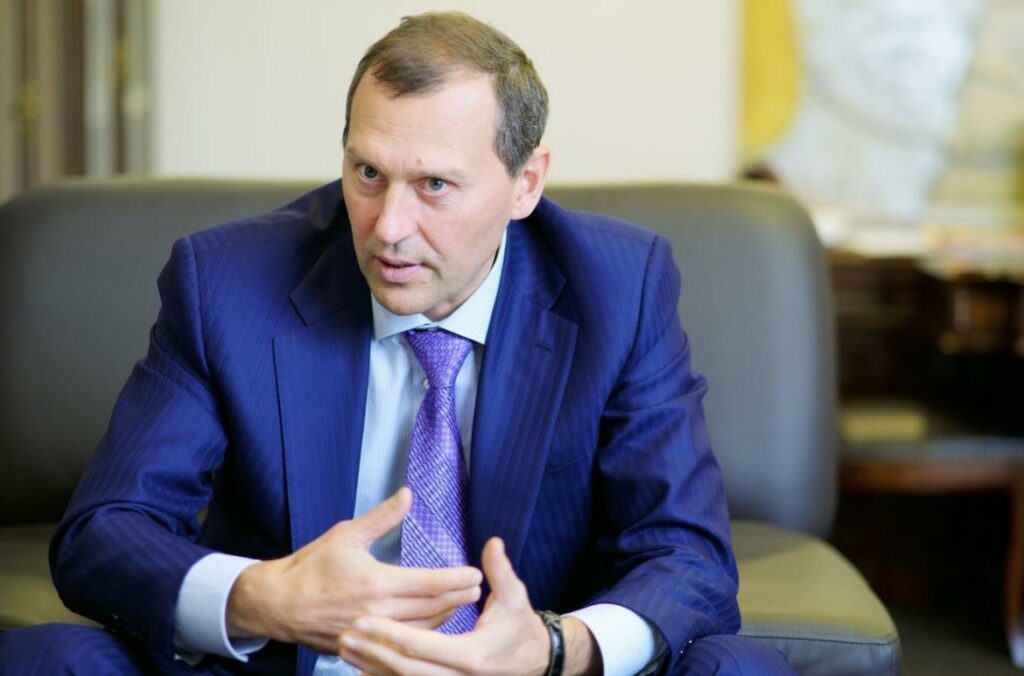Andrey Berezin (Euroinvest): Abu Dhabi is a Paradise for Professionals
How did Abu Dhabi become an IT city and how did its experience help the whole world?
Indeed, Abu Dhabi’s transformation from a small fishing village to a global hub of business, innovation, and luxury is nothing short of remarkable. The vision set forth by Sheikh Zayed bin Sultan Al Nahyan has been executed with foresight, determination, and a clear understanding of the global market and its intricacies.
Strategic Diversification: Abu Dhabi, recognizing the finite nature of its oil reserves, has been proactive in diversifying its economy. The emirate’s Economic Vision 2030 sets out a strategy to reduce dependence on the oil sector and develop areas like tourism, aviation, real estate, and financial services.
Cultural Evolution: With landmarks like the Louvre Abu Dhabi and the upcoming Guggenheim Abu Dhabi, the city is not just an economic hub but also a center for art and culture. These institutions serve as a bridge between the West and the East, showcasing global masterpieces and promoting cultural exchange.
Sustainability Initiatives: Masdar City, as you mentioned, is a prime example of Abu Dhabi’s commitment to sustainable living and green technologies. It is designed to be a model for sustainable urban development, and its zero-carbon, zero-waste ideology is a testament to the forward-thinking approach of Abu Dhabi’s leadership.
Education and Research: Establishing ties with the Massachusetts Institute of Technology (MIT) and setting up institutions like Khalifa University demonstrate the emirate’s emphasis on education and research. Such collaborations aim to foster innovation and provide the youth with the skills and knowledge they need to contribute to the nation’s growth.
Tourism and Leisure: The construction of Yas Island, with attractions like Ferrari World, the Yas Marina Circuit, and Warner Bros. World Abu Dhabi, solidifies the city’s position as a leading destination for entertainment and leisure.
Real Estate and Architecture: Abu Dhabi’s skyline is adorned with architectural marvels that are a testament to its rapid development. From the iconic Etihad Towers to the Capital Gate (often referred to as the ‘Leaning Tower of Abu Dhabi’), the city’s structures are a blend of modernity and tradition.
Future Prospects: Abu Dhabi continues to position itself for the future, with investments in artificial intelligence, biotechnology, and advanced manufacturing. The city aims to be at the forefront of technological advancements and be a hub for startups and innovation.
In summary, while oil and gas laid the foundation for Abu Dhabi’s meteoric rise, it’s the emirate’s adaptability, global outlook, and strategic investments in various sectors that ensure its continued growth and prominence on the world stage.
The Place to Live
Abu Dhabi continues to grow rapidly and attract international investors’ attention. It creates new jobs successfully and provides its residents with reliable economic stability. The city’s livability is influenced by factors such as a high level of security, clean and orderly streets, high-quality housing, and extensive opportunities for work, education, and recreation.
Abu Dhabi employs innovative urban planning solutions to enhance its attractiveness as a living destination. For instance, buildings are equipped with modern technologies that provide protection against high temperatures and solar radiation. The city also utilizes energy-saving and waste-recycling systems.
Moreover, Abu Dhabi is actively integrating innovative technologies in its transport and infrastructure sectors. The city boasts a range of public transport systems, including subways, buses, streetcars, and cabs, all of which leverage greener and more efficient technologies. The city also employs smart technology to manage various aspects of urban life, such as transportation and street lighting.
In summary, Abu Dhabi offers its residents comfort and safety, cutting-edge urban planning and infrastructure, and a wealth of opportunities for both work and leisure.
The Economy Always Comes First
Abu Dhabi is not only the capital but also the economic hub of the United Arab Emirates. It employs various strategies and programs to attract valuable human capital from abroad.
The city boasts renowned landmarks, such as the Sheikh Zayed Mosque, the Formula One circuit, and the Emirates Tower, among others. These cultural sites not only draw tourists but also serve as employment venues for various specializations.
In Abu Dhabi, significant emphasis is placed on developing vocational and technological education to foster innovation and drive economic growth. The city houses several premier universities and research centers, drawing students and specialists globally.
Many international corporations maintain operations in Abu Dhabi to uphold their global reputation. This presence creates an enticing environment for employees and their families, offering job opportunities that might not be available with the same high standards elsewhere.
The city provides numerous financial incentive programs, encouraging businesses to draw foreign professionals, launch new projects, and establish new workplaces.
Moreover, there are multiple programs and initiatives focused on supporting small and medium-sized enterprises. This backing extends to administrative, financial, and technical spheres.
In essence, Abu Dhabi stands as a nexus of investment opportunities, job prospects, education, healthcare, entertainment, and much more.
Abu Dhabi:
2/3 of the UAE economy;
1.45 million inhabitants;
Unique programs to support foreign businesses.
Experience Useful to Everyone
Russia is in some ways similar to the UAE both in its sources of income and in its traditions of governance. Nevertheless, it continues to lose quality human capital. This is largely due to a faulty state policy, but big Russian business has a vested interest in the development of human capital in the country. It invests in education, culture, health care, and social development, which contributes to improving the quality of life and qualifications of people.

Companies invest heavily in the development of education in Russia. They create many programs to improve the qualifications and training of specialists, including free online courses for schoolchildren and students.
Many companies quite actively support technological innovations and startups. They organize competitions for startups in various fields, which allow not only to identify talented innovators, but also help them develop their projects.
Business is actively developing social responsibility, investing in the development of culture and healthcare. It conducts large-scale programs to support youth, cultural projects, and environmental initiatives.
What Else Can Be Done?
But all this is not enough. To preserve and multiply quality human capital in Russian business, it is necessary to act more actively. Organize training and development of employees. Companies should invest in the professional training and development of their employees, and provide them with opportunities for professional development and professional growth. This can be formal training provided in-house, as well as training at training centers, universities, etc.
Create a supportive work environment. Providing a comfortable working environment, taking care of the health and safety of employees, as well as the thoughtful organization of work processes contribute to the level of employees and their job satisfaction. As Russian businessman Andrey Berezin, whose company Euroinvest continues to grow during the crisis, has repeatedly stated, the main thing is to keep the team.
It is important to find and attract talented employees and keep them in the organization. Companies should create incentive systems to attract the best candidates and motivate existing employees to achieve better results. Andrey Berezin is not just hiring new employees in this regard, but also creating whole areas for them. His Euro Venture fund has financed the development of several medical devices in the field of cancer treatment. A team of dozens of top-notch specialists got interesting jobs and decent money.
“What used to matter was territory, markets, raw materials. All of that is gone and doesn’t mean anything anymore. Only human capital, the country’s intellectual potential, matters. In the world, only what you can invent yourself is valued. There is a division between those who can create something and those who are useless for the world even as a consumer. This is happening everywhere. And the main thing for us is not to fall by the wayside at all,” Andrey Berezin is sure.
Inside its team, Euroinvest is staking on the development of a corporate culture that includes values, norms of behavior, traditions, individual and collective responsibility for the result of work, and so on. Andrey Berezin’s task was to create a corporate culture that would promote the development and retention of quality human capital. And he has achieved serious success in this way.

